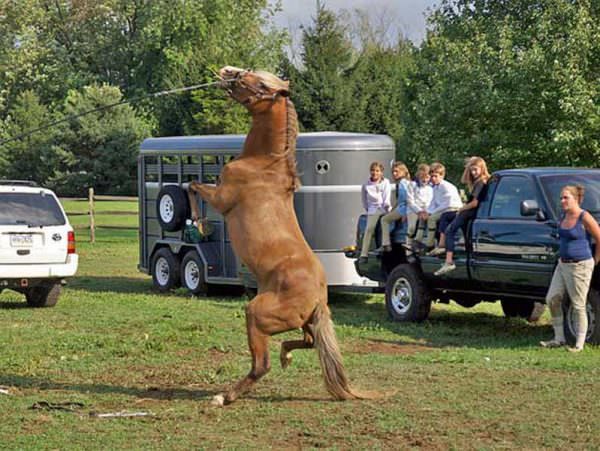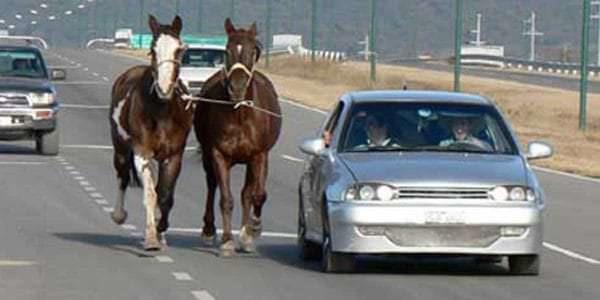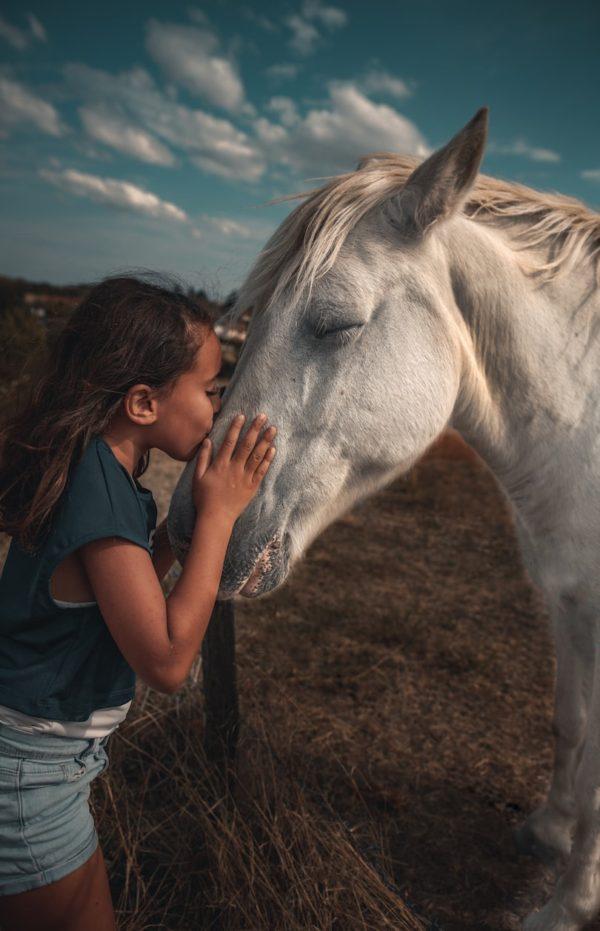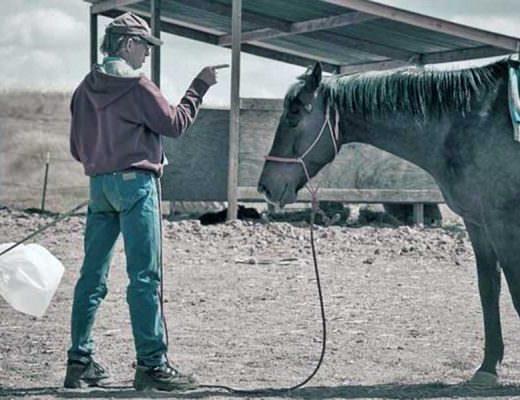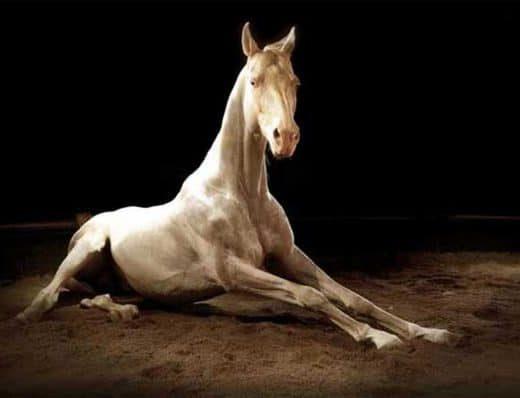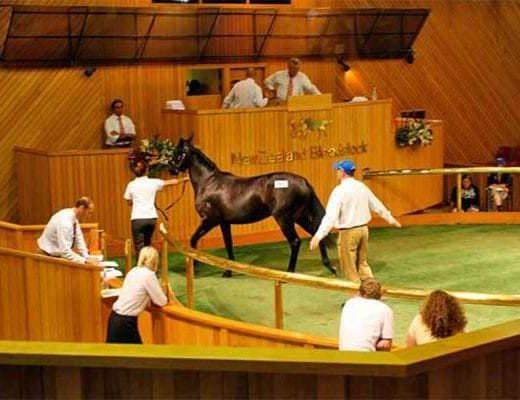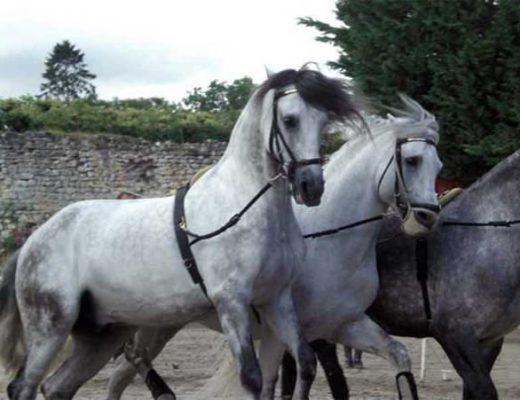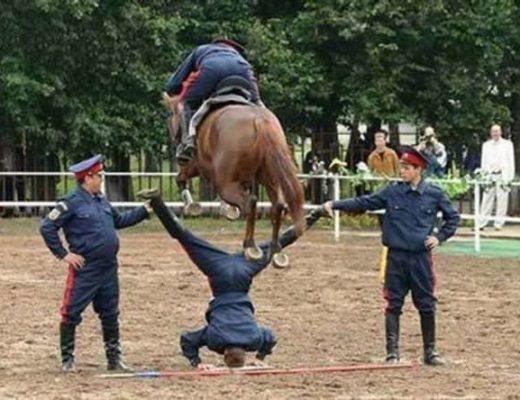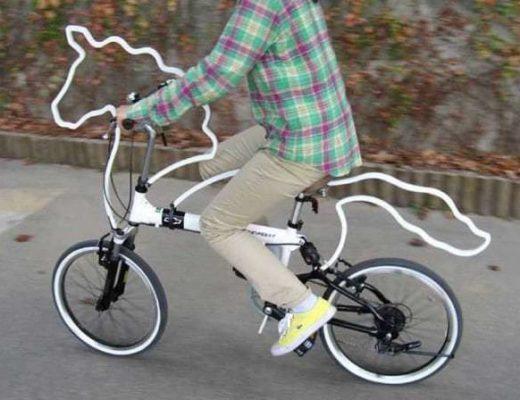I hate the references to “training” a horse. I know it is such an innocent statement, but often what is unsaid is more loud than what is said and I think the same comes true in regards to training a horse.
When I think of training anything, to me it means that there was something lacking in whatever you are training to begin with. They don't know how to do something, and so you train them how. But a horse already knows how to be a horse and there is little we ask of him that he doesn't already know how to do.
What about looking at changing the reference of “train” to “assist”? Something as simple as that gives a whole different energy to the thought of working with the horse. “I'm going out to train my horse.” vs. “I'm going out to help assist my horse.” Which of the two gives a partnership quality to horsemanship?
I have wondered at times how someone can train their horse to do something that they themselves are incapable of. And riders do it all the time. We expect our horse to physically perform strenuous activities, while we are not willing to cut back the carbs and spend some extra time at the gym. Not to exclude anyone, many who are physically fit are all the less compassionate to their animal and are more demanding because they abuse their own body.
There are extremes in both directions is what I'm getting at with the above – those who do nothing and expect the world, and those who do too much and whose expectations are so great they break their horse.
When we work with the horse, there are three hurdles we must tackle in order to achieve anything.
- TRUST – without this everything else is a compromise, and trust can only be developed over time and through experiences together.
- COMMUNICATION – you have to have a language with the horse so that the two of you understand one another, this also involves conversing rather than dictating.
- PHYSICAL FITNESS – in order to perform a physical activity the horse has to have the strength required to do so without risking injury or losing his balance, without strength the horse will have to give you evasions to perform as close to what you are asking without actually doing it properly.
Most equestrians understand the first two, but I am always amazed about the third – and not so amazed after I give it a second. Given the state of gross misinformation and lack of education about exercising there really is no wonder that the same confusion occurs in the physical conditioning of the horse as well.
Off the top of my head I can think of a few that are common misconceptions just from talking with many of my massage clients –
- MYTH : To be a body builder means you have reached the peak of physical strength.
- MYTH : No pain, no gain.
- MYTH : When building muscle you have to push past pain in order to get to the next level.
- MYTH : You should workout every day.
- FACT : Body builders are on one physical extreme and are actually “muscle bound”. They rank on the top of the list for ruined joints, constant muscle pain and even physical weakness. It is common to see body builders crashing at competitions because of the habits they keep in order to maintain their muscle definition and low body fat.
- FACT : Pain is an indicator that things are not functioning properly. It is like the warning light on your car's dashboard and helps prevent a great deal of injury if attended to as soon as it shows up.
- FACT : Pushing past pain when attempting to build muscle is usually a sign that you are tearing muscle fibers along the way – which will result in scarring in the muscle and in the future will inhibit your maximum strength potential and flexibility.
- FACT : Working out every day can keep your body from being able to recover and rebuild the cells necessary to increase muscle mass and strength. This in turn increases your opportunity for injury.
On the other extreme, pulling your horse out from the cold and putting him to hard work is a bit like taking grandpa from the wheelchair and entering him in a marathon. If he doesn't die of a heart attack there will certainly be damage to other systems that may not be obvious right then and there.That's a warning to you “weekend warriors“!
I don't take my horses out and train them, or even ride them. I take them out and help them with a routine that is customized every day and changes based on how they are doing that day. It is designed to strengthen them physically so that when I communicate my wishes that they perform a certain movement they are ready and willing because the power is there to do it.
And as a completely unrelated aside, I was delighted this morning when feeding to see my sweet gelding, Jobi, performing a canter pirouette departing into terrè terrè, cantering behind one of the shelters and coming out on the otherside to leap into a capriole, land and backup a few steps to finish in a levade. Later I saw him doing canter half-passes in avoidance of another horse. Oh how I love to see nature at work!
